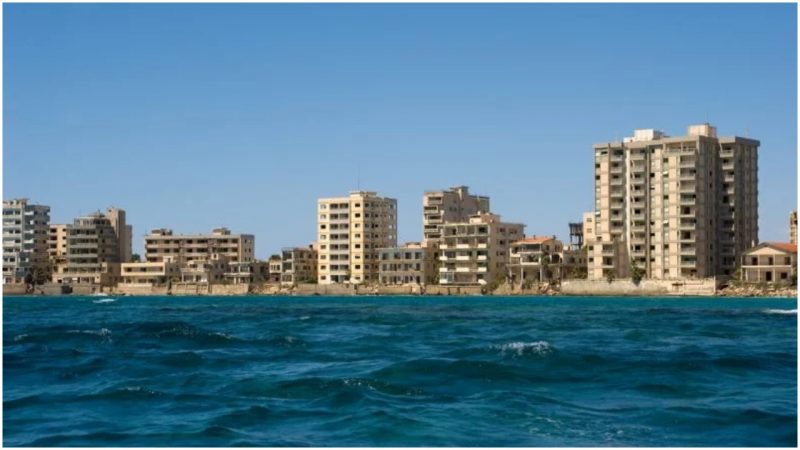Famagusta was for a short while a glamorous town and the most sought-after sophisticated beach resort in the Mediterranean. Around 40 000 people had the luck to live a peaceful, cultural, artistic lifestyle, hosting thousands of visitors who, drawn by the impeccable turquoise horizon and soft powdery sand, flocked to the place year after year to unwind and slow down.
The picture is nothing like that today though.
The most striking image is that of a man standing near barbed wire on a seashore marked with countless “No Entrance” signs all over. He is facing towards Varosha, formerly the most extravagant district in this city. If he was lucky enough to live in it, then surely he’s standing there heartbroken — sad to see his old neighborhood completely abandoned.
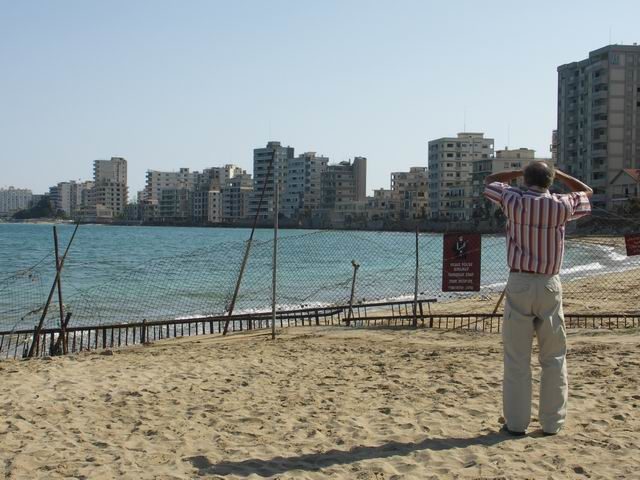
The whole district was lined with expensive mansions and palatial hotels that attracted millionaires and celebrities with their elegant deluxe apartments. Paul Newman, Richard Burton, Raquel Welch, everybody that had class and held a hard-earned star-like reputation.
King George Hotel, the Asterias Hotel, the Grecian Hotel, the Florida Hotel, nearly half of the island’s hotels were situated in this part of the town, and they served as a summertime paradise for the elite, the jet-set of the 1960s and ’70s.
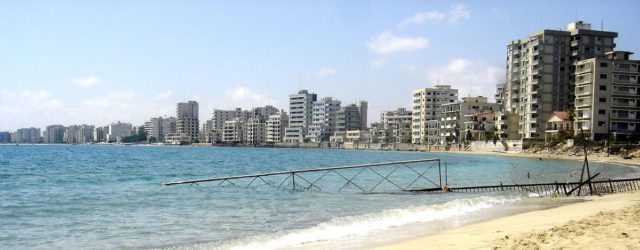
It was a fine place for the finest of people where everybody had a blast without a care in the world.
Today stretching for miles on the turquoise seashore, the thousands of tropical tiki umbrellas that dot the pale sandy beach are rotting in the sand. Scorched by the sun, they give shade to no one.
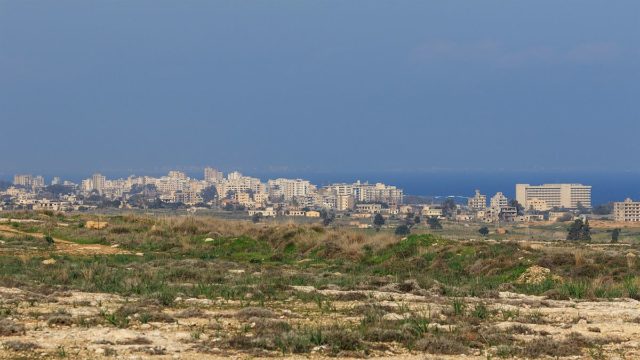
Old children’s toys, abandoned objects and people’s clothes from the disco era lay scattered around, littering the premises. Only the occasional “ploink” of water dripping somewhere nearby breaks the deafening silence that runs through the air of this frozen in time post-apocalyptic dead world.
The sinister scenery points towards the obvious: Whoever lived here left some time ago, and in a hurry it seems. With no power and no signs of anyone, questions arise, and one’s mind begins to unravel. What happened? Why is there no one around?
Is the man depicted in the image desperately scouting for others alive nearby as Zac Hobson was in Geoff Murphy’s post-apocalyptic drama The Quiet Earth?
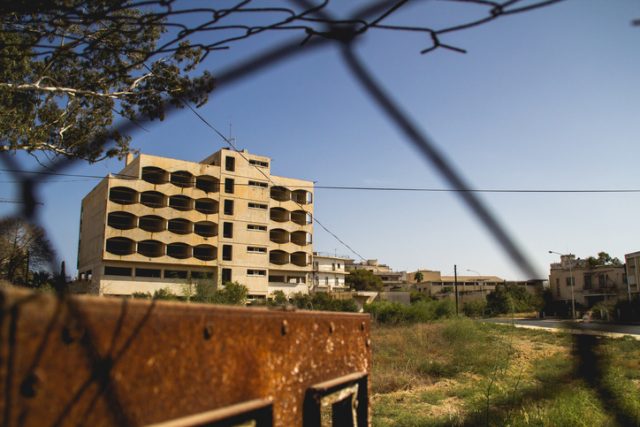
No, he isn’t. He’s a man in his sixties who, presumably as many just like him, fled in a hurry decades ago and left everything behind. He knows there’s no one.
He spots the street where he grew up, and remembers the first time he saw Elizabeth Taylor from across the street in the late ’60s. She was a regular at the luxurious Argo Hotel, as was Brigitte Bardot.
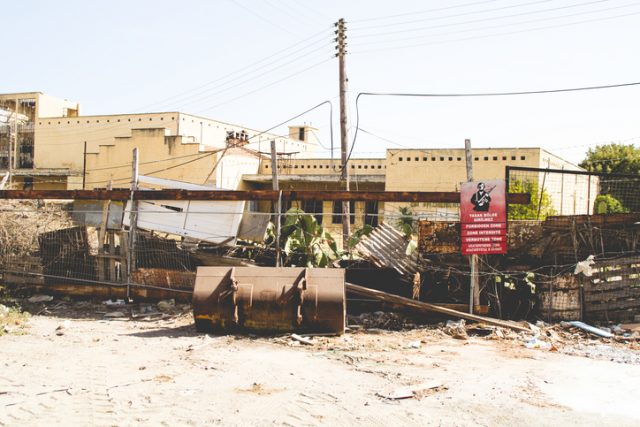
Soldiers are the only thing moving in the city. He notices some of them patrolling down the road and seeing them he remembers the day when everything changed. When that flourishing world-class seaside resort for the rich and famous always abuzz with life and glamour became still and was turned into a ghost town in just a matter of days.
It was July 20, 1974, when Turkey, after long years of unsuccessful negotiation with Greece, sent troops and tanks to bombard the place. The two parties had had some bickering and ongoing “peaceful” negotiations about who owns which part of the island, though the Greek Cypriots and the Turkish Cypriots, for the most part, shared the island in relative peace and harmony.
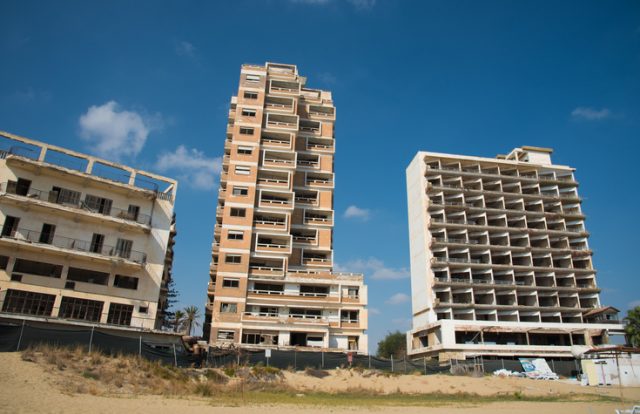
Greece unsuccessfully staged a coup and tried to seize control over the island, and Turkey was outraged to see Greece break the peace treaty.
To protect their own territory in the north of the island, Turkey sent its military to the north of Cyprus — and without any forewarning invaded Famagusta, including Varosha, which at the time was mostly inhabited by Greek Cypriots.
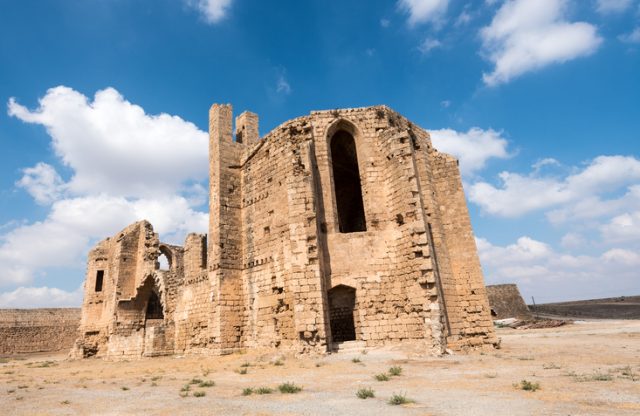
In a desperate bid to save their lives, 39,000 inhabitants of this ethnic group left everything and fled in terror, taking the clothes they were wearing and virtually nothing else. Men, women, children, everyone. By foot mostly. Cars and buses were a luxury to the few lucky enough to find one nearby. Very briefly the town was almost empty. By mid-August, there was no soul alive.
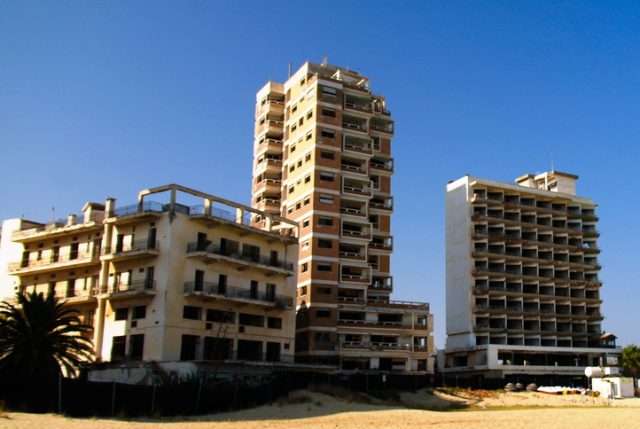
“We left with the certainty that we would soon return, believing that the civilized world would never accept this crime against Cyprus,” declared Alexis Galanos, the mayor in exile, while expressing his feelings for the Telegraph years after the terrible event. “We were wrong.”
Hours turned into weeks, weeks into decades, but nothing changed. Turkey refused to back off.
In 1984, the United Nations officially declared that Varosha be returned to its original inhabitants. They also forbade any outside interference, instructing the two parties to find a peaceful resolution. One is still yet to be found.
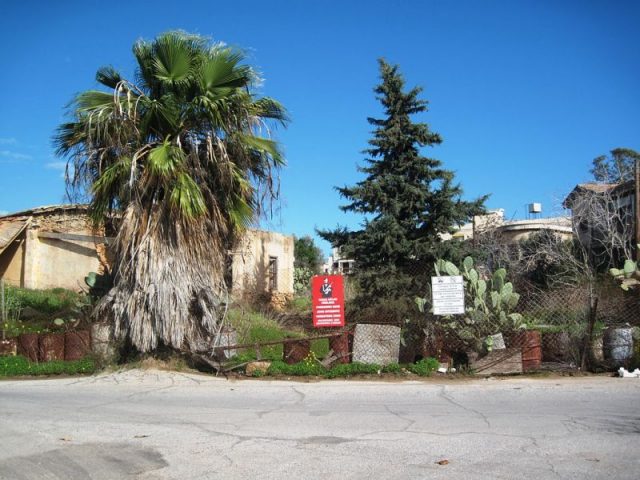
While some were allowed to return to the city of Famagusta, the man from the striking image wasn’t. No one is; Varosha is still off-limits for its former residents. The Turkish army still governs the land, and only authorized personnel and government officials are allowed inside.
Everyone else caught in the restricted area on the other side of the fence and the “No Entrance” signs may be shot or arrested.
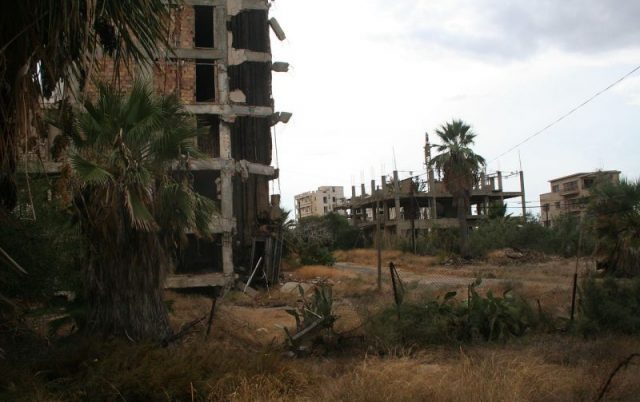
The district and everything in it is just as it was when the army walked in. Miraculously, Turkey kept the place intact and it appears exactly as it once did, as if a testament to the lives suddenly interrupted.
The ground is hard and dead today, with occasional shards of glass scattered here and there on the streets. An odd collection of vehicles, buses, trucks, even some cars and a motorcycle lie broken covered in dust, rusting away just off the road.
Majestic buildings rise on each side — hotels from days bygone reclaimed by nature. Some are slowly crumbling, their façades decayed. They haven’t housed anyone for a while. Palm trees grow through the houses nearby, probably demolishing everything of value inside.
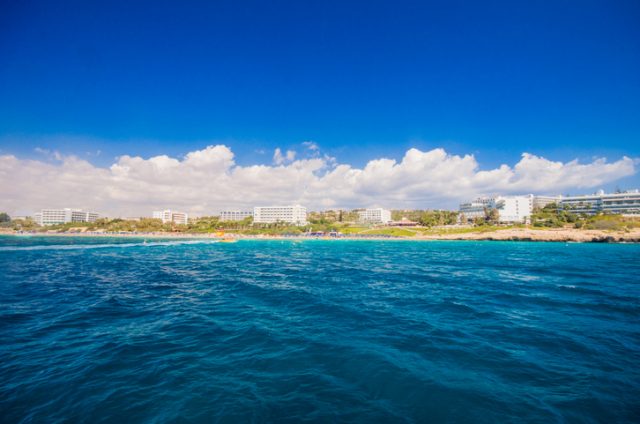
Among these structures, one vastly bigger than the rest looks intact. Only small chunks of concrete can be seen to have fallen from the cracking shell.
Piercing the sky, this marvel of construction is the sole remaining building intact for miles around, as if mocking all those around damaged beyond any repair. It seems to be as empty as the rest though. All the windows are left open.
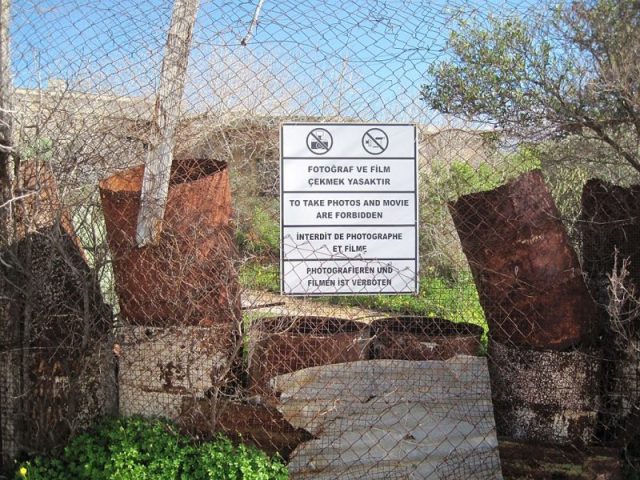
A rusty old child’s bike leans against a broken street lamp in front of this building with a sign “JFK Avenue” right next to it. Above it there’s another one, a huge sign, with dust so thick, the red letters “Argo Hotel” can hardly even be seen. Left half open, the entrance door reveals a small reception area with nothing but empty chairs and uncleaned tables.
Read another story from us: Aerosmith Tour Van from the 70s Found Abandoned in the Woods
The man on the poster seems to be staring at the bike. It could well be his son’s. He’s far too back to see clearly though, and far too old to know for sure. If it wasn’t, it certainly belonged to someone else extremely unfortunate, who maybe one day stood and stared at it through the fence, reminiscing about the sad day when he left it behind.
